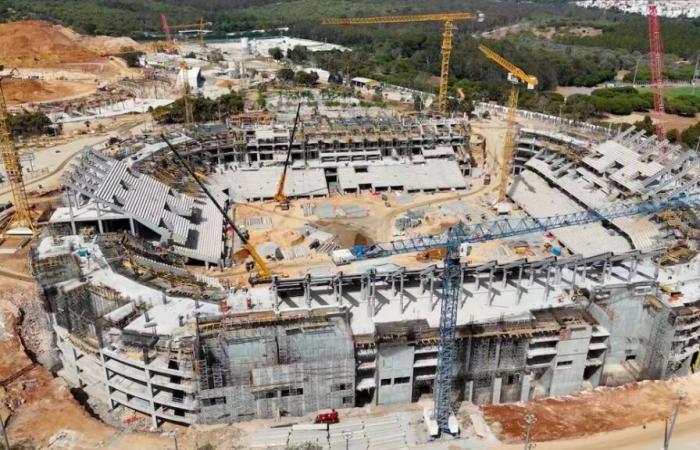Morocco positions itself as a model of strategic management of major international sporting events, by exploiting these deadlines as opportunities to initiate structuring projects.
Unlike certain countries which invest massively for the ephemeral prestige of the organization, the Kingdom is banking on sustainable infrastructure with significant social and economic benefits for decades to come. These initiatives are part of an overall vision of modernizing the country and strengthening the quality of life for its citizens.
Sports infrastructures for the future
Preparations for the 2025 African Cup of Nations (CAN) and the 2030 World Cupwhich Morocco will co-organize with Spain and Portugal, include colossal investments in sports infrastructure. The Kingdom is allocating a budget of 20 billion dirhams to modernize existing stadiums such as the Mohammed V stadium in Casablanca and that of Marrakech, while building new infrastructure such as the Grand Stade Hassan II in Casablanca. The latter, with a planned capacity of 115,000 seats, will be one of the largest stadiums in the world, positioning Morocco as a key player in the international sports organization.
Mobility: a development lever
One of the most ambitious aspects of the preparations concerns the development of transport infrastructure, in particular the creation of Regional Express Networks (RER) in Casablanca and Rabat. These projects aim to improve urban and regional mobility, while relieving congestion on roads. In Casablanca, lines linking Mohammedia, Nouaceur, and Settat are planned, with passage frequencies adapted to user needs. Rabat will also benefit from a strategic line connecting Kénitra to Skhirat, via Salé and Témara.
Read also | What will the FIFA Africa Office that Morocco will host be used for?
At the same time, the extension of the Line to High Speed (LGV) between Tangier and Marrakech is underwayfacilitating quick travel between host cities. These projects are accompanied by the construction of 20 new modern stations, designed to serve a wide public and encourage the use of public transport.
A lasting economic and social legacy
These projects transcend the framework of sporting events and aim to leave a lasting legacy for the country. Improved transport infrastructure and stadiums are expected to boost tourism, stimulate job creation and attract foreign investment. These initiatives align with the national sustainable development strategy, aiming to strengthen the economic integration of the regions and promote environmentally friendly modes of transport.
Sport as a vector of modernization
Sport, in its event dimension, has become a catalyst for development for Morocco. By using sporting deadlines as an alibi to accelerate the modernization of infrastructure, the Kingdom is demonstrating a proactive vision. These investments are not only used to meet the requirements of international competitions, but contribute to a profound and lasting transformation of the country.
An international and regional ambition
Morocco’s strategic position, equidistant from major global destinations, reinforces its attractiveness as a hub for major international events. The structuring projects launched as part of the preparations for the CAN and the World Cup are part of a dynamic aimed at making the Kingdom a destination of choice for investors, tourists and athletes. At the same time, these initiatives contribute to improving the quality of life of Moroccan citizens by making infrastructure accessible and efficient.
A long-term vision
Unlike other countries which found themselves with unused infrastructure after large-scale events, Morocco places its investments in a logic of sustainability and long-term service. Each project launched for these sports competitions contributes to building a future where mobility, economic development and quality of life are priorities.
Read also | 2030 World Cup: Morocco, a key player on the world stage [Rapport FIFA]
Morocco’s preparations for international sporting events demonstrate that sport, as long as its manifestation is not its own purpose, can be a powerful engine of social and economic transformation. Through rigorous planning and a clear vision, the Kingdom stands out as a model of sustainable development, where progress benefits not only spectators and participants, but above all future generations.






